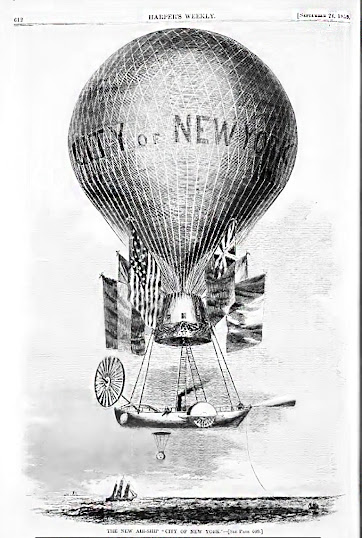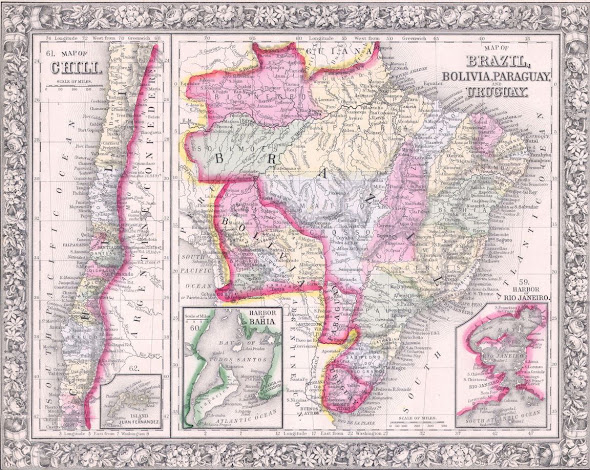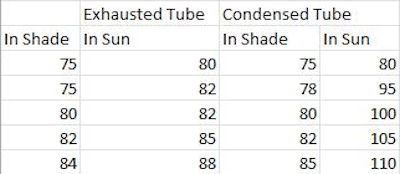Disposal of Slave Ships and Cargo May 1860
The Slave trade
May 19, 1860: Message on the Capture
of the Slaver Wildfire
An address by
President James Buchanan
On
the 26th day of April last Lieutenant Craven, of the United States steamer
Mohawk, captured the slaver Wildfire on the coast of Cuba, with 507 African
negroes on board. The prize was brought into Key West on the 31st April and the
negroes were delivered into the custody of Fernando J. Moreno, marshal of the
southern district of Florida.
The question which now demands immediate decision is, What disposition shall be
made of these Africans? In the annual message to Congress of December 6, 1858,
I expressed my opinion in regard to the construction of the act of the 3d
March, 1819, "in addition to the acts prohibiting the slave trade,"
so far as the same is applicable to the present case. From this I make the
following extract:
Under the second section of this act the President is "authorized to make
such regulations and arrangements as he may deem expedient for the
safe-keeping, support, and removal beyond the limits of the United States of
all such negroes, mulattoes, or persons of color" captured by vessels of
the United States as may be delivered to the marshal of the district into which
they are brought, "and to appoint a proper person or persons residing upon
the coast of Africa as agent or agents for receiving the negroes, mulattoes, or
persons of color delivered from on board vessels seized in the prosecution of
the slave trade by commanders of United States armed vessels."
A doubt immediately arose as to the true construction of this act. It is quite
clear from its terms that the President was authorized to provide "for the
safe-keeping, support, and removal" of these negroes up till the time of
their delivery to the agent on the coast of Africa, but no express provision
was made for their protection and support after they had reached the place of
their destination. Still, an agent was to be appointed to receive them in
Africa, and it could not have been supposed that Congress intended he should
desert them at the moment they were received and turn them loose on that
inhospitable coast to perish for want of food or to become again the victims of
the slave trade. Had this been the intention of Congress, the employment of an
agent to receive them, who is required to reside on the coast, was unnecessary,
and they might have been landed by our vessels anywhere in Africa and left
exposed to the sufferings and the fate which would certainly await them.
Mr. Monroe, in his special message of December 17, 1819, at the first session
after the act was passed, announced to Congress what in his opinion was its
true construction. He believed it to be his duty under it to follow these
unfortunates into Africa and make provision for them there until they should be
able to provide for themselves. In communicating this interpretation of the act
to Congress he stated that some doubt had been entertained as to its true
intent and meaning, and he submitted the question to them so that they might,
"should it be deemed advisable, amend the same before further proceedings
are had under it."
Nothing was done by Congress to explain the act, and
Mr. Monroe proceeded to carry it into execution according to his own
interpretation. This, then, became the practical construction.
Adopting this construction of President Monroe, I entered into an agreement
with the Colonization Society, dated 7th September, 1858, to receive the
Africans which had been captured on the slaver Echo from the agent of the
United States in Liberia, to furnish them during the period of one year thereafter
with comfortable shelter, clothing, and provisions, and to cause them to be
instructed in the arts of civilized life suitable to their condition, at the
rate of $150 for each individual. It was believed that within that period they
would be prepared to become citizens of Liberia and to take care of themselves.
As Congress was not then in session and as there was no outstanding
appropriation applicable to this purpose, the society were obliged to depend
for payment on the future action of that body. I recommended this
appropriation, and $75,000 were granted by the act of 3d March, 1859 (the
consular and diplomatic bill), "to enable the President of the United
States to carry into effect the act of Congress of 3d March, 1819, and any
subsequent acts now in force for the suppression of the slave trade." Of
this appropriation there remains unexpended the sum of $24,350.90, after
deducting from it an advance made by the Secretary of the Interior out of the
judiciary fund of $11,348.10.
I regret to say that under the mode adopted in regard to the Africans captured
on board the Echo the expense will be large, but this seems to a great extent
to be inevitable without a violation of the laws of humanity. The expenditure
upon this scale for those captured on board the Wildfire will not be less than
$100,000, and may considerably exceed that sum. Still, it ought to be observed
that during the period when the Government itself, through its own agents,
undertook the task of providing for captured negroes in Africa the cost per
head was much greater than that which I agreed to pay the Colonization Society.
But it will not be sufficient for Congress to limit the amount appropriated to
the case of the Wildfire. It is probable, judging from the increased activity
of the slave trade and the vigilance of our cruisers, that several similar
captures may be made before the end of the year. An appropriation ought
therefore to be granted large enough to cover such contingencies.
The period has arrived when it is indispensable to provide some specific
legislation for the guidance of the Executive on this subject. With this view I
would suggest that Congress might authorize the President to enter into a
general agreement with the Colonization Society binding them to receive on the
coast of Africa, from an agent there, all the captured Africans which may be
delivered to him, and to maintain them for a limited period, upon such terms
and conditions as may combine humanity toward these unfortunates with a just
economy. This would obviate the necessity of making a new bargain with every
new capture and would prevent delay and avoid expense in the disposition of the
captured. The law might then provide that in all cases where this may be
practicable the captor should carry the negroes directly to Africa and deliver
them to the American agent there, afterwards bringing the captured vessel to
the United States for adjudication.
The capturing officer, in case he should bring his prize directly to the United
States, ought to be required to land the negroes in some one or more ports, to
be designated by Congress, where the prevailing health throughout the year is
good. At these ports cheap but permanent accommodations might be provided for
the negroes until they could be sent away, without incurring the expense of
erecting such accommodations at every port where the capturing officer may
think proper to enter.
On the present occasion these negroes have been brought to Key West, and, according to the estimate presented by the marshal of the southern district of Florida to the Secretary of the Interior, the cost of providing temporary quarters for them will be $2,500 and the aggregate expenses for the single month of May will amount to $12,000.
But this is far from being
the worst evil. Within a few weeks the yellow fever will most probably prevail
at Key West, and hence the marshal urges their removal from their present
quarters at an early day, which must be done, in any event, as soon as
practicable. For these reasons I earnestly commend this subject to the
immediate attention of Congress. I transmit herewith a copy of the letter and
estimate of Fernando J. Moreno, marshal of the southern district of Florida, to
the Secretary of the Interior, dated 10th May, 1860, together with a copy of
the letter of the Secretary of the Interior to myself, dated 16th May.
It is truly lamentable that Great Britain and the United States should be
obliged to expend such a vast amount of blood and treasure for the suppression
of the African slave trade, and this when the only portions of the civilized
world where it is tolerated and encouraged are the Spanish islands of Cuba and
Porto Rico.




Comments
Post a Comment